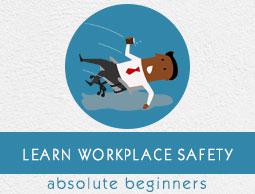Workplace Safety - Manager’s Role
It is mandatory for any organization to provide safe and secured work environment to workers or employees and all those who are directly or indirectly related to it. In small organizations, the employer or his/her close aide looks after the safety and health aspects. However, in large organizations, a special department or section is organized for carrying out safety and health measures. The safety manager who heads the department has the sole responsibility to execute and ensure all these measures in the organization.

It is the responsibility of the manager to create a safe work environment. If there is no safety at workplace, employees would not prefer to work and the attrition or low turnout rate increases, i.e., the employees look for job opportunities elsewhere and the work stops, which finally results into downfall of the organization. Hence workplace safety is very important and it is the responsibility of the manager in creating the workplace a safer place to work in.
How to Enforce Workplace Safety Standards?
Among the many concerns that business owners face, the most essential and often disregarded is the issue of health and safety in the workplace. Environmental, health, safety, and quality requirements have enhanced for businesses. This increase has added to the need for organizing process to ensure that these standards are met.
Encouraging health and safety in the workplace not only offers an affirmative work environment for employees, but it also proves to be advantageous to the owner and business as a whole. However, temporary or short-term approach to safety and health needs seems formidable and ineffective.

Economic Benefits of Establishing Safety Etiquettes
Studies show that as safety standards are enhanced, work planning increases as well. Many of the accidents resulted in cutting down of work hours, lessening production and decreasing efficiency.
In addition to safety standards, the promotion and education of health standards can also prove to be helpful to companies. While the rate of injury in the workplace has been minimized in the last several years, the rate of illness has increased. One of the leading concerns for employees is the fact that most spend one-third of their day, five to six days a week, at the work place. This information signifies that the workplace is a perfect place to promote health for employees.
Ethical Benefits
When a business’s executive level executes ethical practices, especially in areas that directly satisfy the individual employee, the general sense of corporate responsibility enhances and individual employees tend to respond in kind. This mutual relationship can comfort the company as a whole in many ways. Workers are most productive and comfortable when their personal ethics and organizational ethics are complementary.
Openly advancing ethical guidelines can help employees judge the proper route to take on conditions where a more ethical solution is not noticeable. By doing so, a company can neglect many illnesses, injuries, and other issues that negatively affect efficiency.
Increasing the company’s public image by promoting honesty on both the executive and individual employee levels is advantageous. It not only indirectly increases profits, but it also helps to bring in new business from clients and partners looking for respectable companies.




